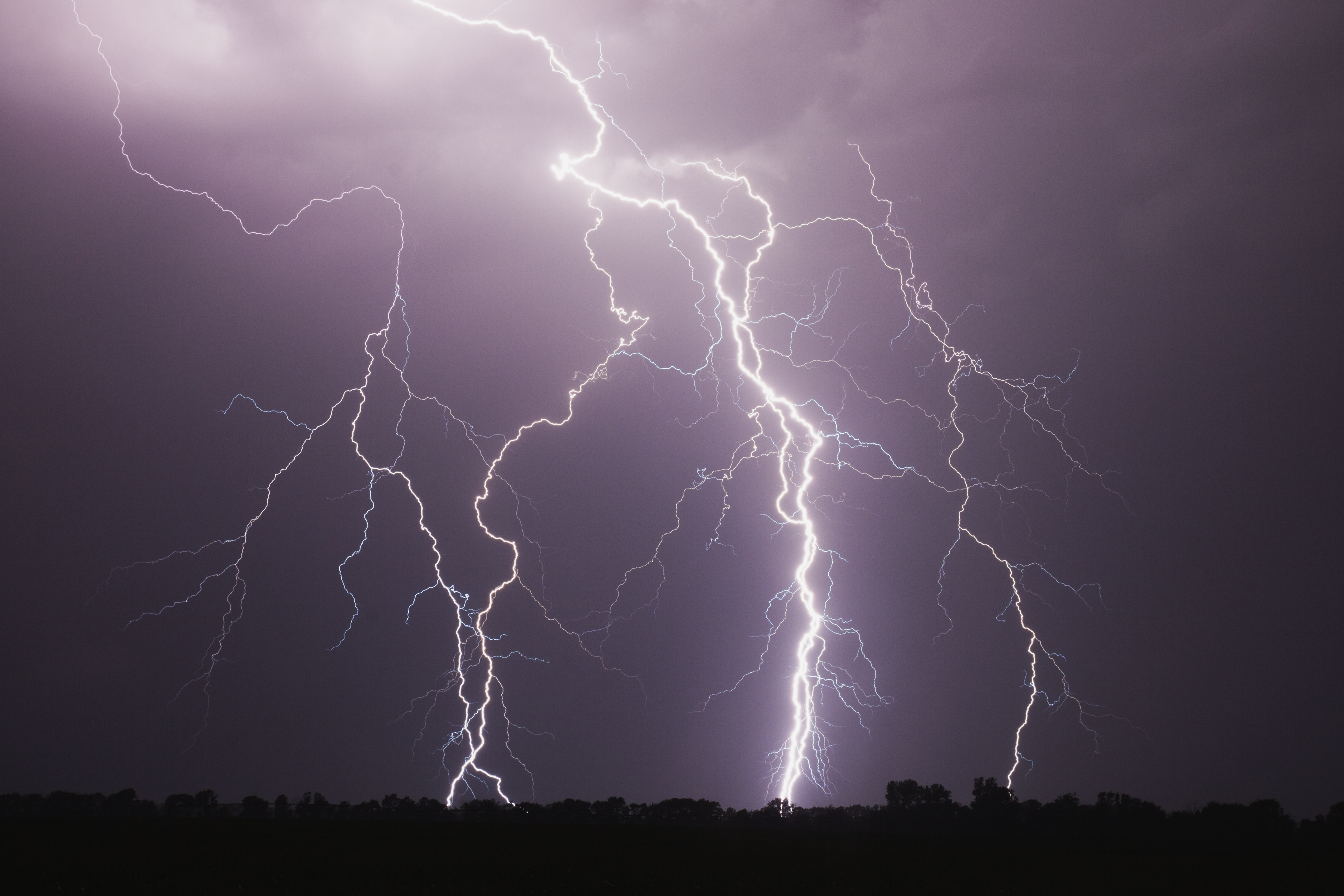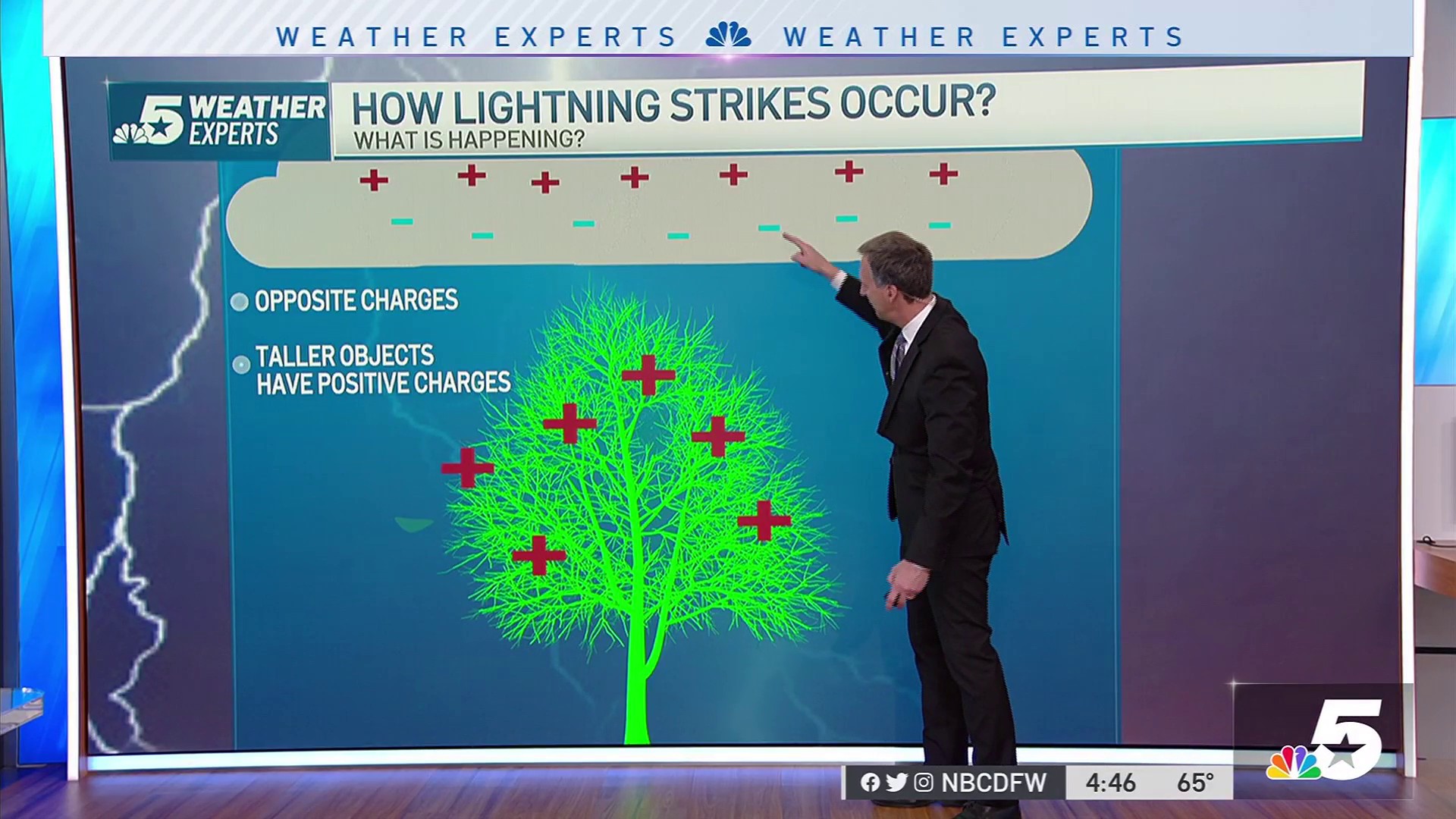A Fort Worth Police Department recruit and two of the Fort Worth Fire Department's personnel are recovering after a lightning strike as storms moved through North Texas Friday morning.
It happened at around 10:30 a.m. at the Bob Bolen Public Safety Complex in the 500 block of West Felix Street. The complex serves as a combined headquarters and training academy for Fort Worth's fire and police departments.
Cadets were out running on the track at the complex and the firefighters were packing up after training had just been canceled at the aquatic area nearby.
The cadet was "possibly struck by lightning in the ankle" according to the Fort Worth Police Department. He was taken to a local hospital and was reported to be in good condition.
Get DFW local news, weather forecasts and entertainment stories to your inbox. Sign up for NBC DFW newsletters.
The Fort Worth Fire Department says two fire department personnel reported minor injuries due to the strike as well. They were assessed at their station and remained on duty.
"It's a great reminder to be cautious even if you think a storm is far away and not close enough to affect you, lightning can still strike," said Fort Worth Police public information officer Jason Spencer.
"Thankfully we have a fire department attached to this complex so it was within a minute that we were able to respond,” said James McAmis, Fort Worth Fire battalion chief.
NBC 5 meteorologists say lightning can strike up to 25 miles away from the parent thunderstorm, that's why if you can hear thunder you should head indoors because you are close enough to be hit by lightning.
LIGHTNING
"If you hear thunder rumbling that's a great sign that you need to go indoors because lightning can strike outside of a storm," said Fort Worth Fire Battalion Chief James McAmis.
MedStar Mobile Healthcare, which transported the cadet, has responded to multiple calls for lightning strikes this storm season.
"Typically, what we see in a near lightning strike is you're gonna have burns, because electricity is gonna go through your body," said Matt Zavadsky with Medstar. "Just know that storms can come up at any time and we're seeing that time and time again. And today's case was just an example."
It is National Lightning Safety Awareness Week so first responders hope North Texans realize even they are not immune to the dangers of lightning.
“About 20 people per year in the United States are killed by lightning strikes, hundreds of others are injured,” said Zavadsky. “We've had two other cases already this season where people were in the area where lightning struck and they got lightning strike peripherally. So it can happen and it does happen here in North Texas, especially lately with these pop-up thunderstorms.”
"We also see a lot of broken bones because when electricity goes through your body, your muscles contract and oftentimes those muscle contractions can cause fractures in your bones or the electricity itself can actually cause your bone to split," said Zavadsky. "And that could happen even if it was just not a direct hit, but just an associated hit, those types of injuries can occur.
If you’re outdoors when a lightning storm is present and you can’t find shelter, the CDC provides a checklist of things you can do and not do:
- Immediately get off elevated areas such as hills
- Immediately get out of and away from ponds, lakes, and other bodies of water.
- Crouching or getting low to the ground can reduce your chances of being struck, but it does not remove you from danger.
- Never lie flat on the ground. Crouch down in a ball-like position with your head tucked and hands over your ears so that you are down low with minimal contact with the ground.
- Never shelter under an isolated tree. If you are in a forest, shelter near lower trees.
- Never use a cliff or rocky overhang for shelter.
- Stay away from objects that conduct electricity (such as barbed wire fences, power lines, or windmills).
- Stay away from tall structures, such as telephone poles and trees; lightning tends to strike the tallest object around.
- Separate from others to reduce the number of injuries if lightning strikes the ground.
“If thunder roars, get indoors,” said Zavadsky. “Just know that storms can come up at any time… and we're seeing that time and time again. And today's case was just an example.”



